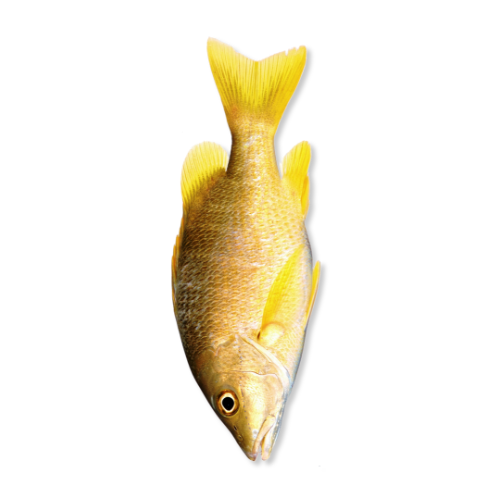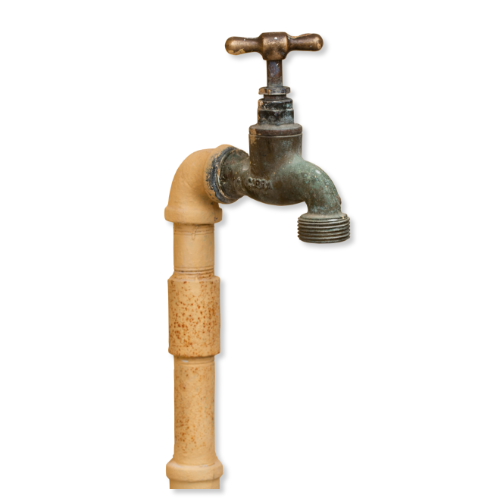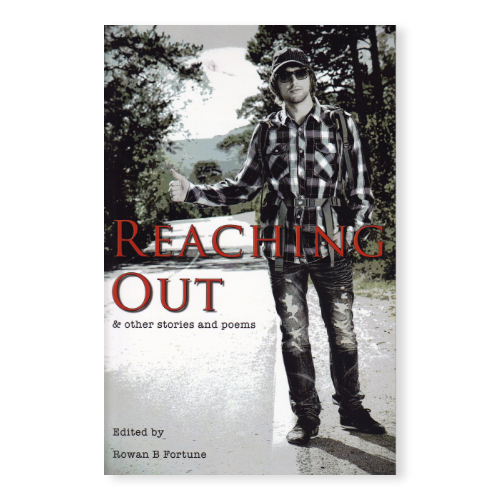
Terra Firma
SHORT STORY
All the water across the world is drying up. On a beach that no longer sees any waves, a boy asks his father what is happening while he hunts for a dead fish.


OPENING
“Can we look for one?” I ask him.
He shrugs. “I don’t think there’s any left.”
“None at all?”
“Maybe in other places. I don’t know if there were ever many here.”
I run off beyond the last legs of the pier, out from its shadow and onto the endless flat sand stretching beyond where I can see. I can remember walking out this far with Dad when I was a lot younger; back then, the ground would squelch and suck around your ankles.
The sand underneath is dry; the wind is forever moving the top layer on in long hissing snakes. The vast openness grabs me and I break into a sprint in an effort to fill the space before me, but then I stop.
Behind me, he looks smaller than I thought he would. Too far away.
I run back until our voices are audible again.
“It won’t all come rushing back again, will it?” I ask him.
“No,” he says.
“Hasallthe water gone now?”
“No, not yet. Remember the pictures on TV? The river?”
“And all the people in tents?”
“Yes.”
“And they’ve gone now?”
“That’s right.”
“Why did they make them go?”
“Because they wanted to make sure that it was all shared equally.”
“Grandad says it’s not being shared properly, I heard him say to Mum.”
“People say a lot of things. Your Grandad especially.”
“But you can walk to France now?”
“You could, the channel has gone, but they still wouldn’t let you go all the way over.”
“Would it be dangerous?”
“Yes.”
Dad has this way of talking where he hardly says anything, but you can tell he knows everything about it. Sometimes when Mum and Grandad talk about things, Dad will just say one thing and they stop talking, just like that. The thing he says the most is, “It won’t make any difference,” and then they immediately go silent and just sit staring at the floor.
Grandad got excited when they put the big machine at the end of our road. A huge round drum with a giant fan in it and pipes for the trucks. A giant de-hu… a de-huma… I don’t remember. Grandad calls them ‘the ol’ Humphrey dryers.’
I like watching the trucks all lined up.
I dance around in the sand and see the pattern I have made. It looks like a spider’s web or a snowflake. I run to a fresh spot and stamp out the world ‘HELP’ in letters bigger than me.
I shield my eyes from the sun to check where Dad is.
“Do you think anyone will read it?” I ask him, craning my head to the sky.
“Who knows?” he says. “It’s as good a plan as any.”
“But all the people on the news, the very cleverest scientist on earth, they must know.”
“A lot of people use a lot of long words now instead of just admitting that they don’t know anything.”
The sand snakes come hissing round my feet to see what I have written and quickly roll across the letters, swallowing them up. I stamp around on them, but by the time I redraw one letter, the sand rushes back in before I have a chance to start the next one.
I get some sand in my eye and flinch away from the wind.
“You okay?” he asks.
“Yep. Just sand.”
Blinking my eyes open, I spy a rusted metal ring sticking out of the beach. I pull it up and an old chain rips out of the sand. I pull more and more of it up until the handfuls become unwieldy and the chain is stuck too deep for me to free it.
“Where does this go?” I ask.
He kneels down to examine it with me. “Maybe there’s a boy in America holding the other end and asking his dad the same question.”
He gives it an extra hard yank and frees more of it. A few more tugs and a great clod of crackly seaweed lifts up with it. It dangles in the air.
“Or maybe not,” he mutters.
He sighs and stares out at where the sea used to be. Then he stares at his feet.
“Oh, look, Tom! I’ve found one,” he says.
I lean over to see a dead fish lying on the sand.
“It’s dead,” I say.
“Long dead,” he says. “You won’t find any live ones here.”
“It looks like a comb.”
“They used to use them as combs a long, long time ago.”
“Urgh. That would make your hair stink.”
“It probably did.”
“It’s not… a… cod, is it?”
“Too small. Too far in.”
“Goldfish don’t live here, do they?”
“No. Sorry, I don’t know what it was.”
“Was it eaten?”
“It probably just dried out.”
“There’s water inside of us, isn’t there?”
“Yes.”
“Will we dry out?”
“I don’t know,” he says and immediately looks off towards the horizon again.

PUBLISHED IN

- Page count: 154 pages
- Publication date: 2 August 2013
- Publisher: Cinnamon Press
- ISBN-10: 1907090886
- ISBN-13: 9781907090882
REACHING OUT
Reaching Out introduces new and emerging voices in short story and poetry. Joanna Campbell’s Carr’s ‘Aurora and the Book Trolley’ spins us into fantasy worlds woven by a child who uses a medical dictionary to role play adults into territories way outside their comfort zones – “it’s her way of reaching out to people” her mother confides to a confused hospital librarian. Scarcity of detail, that aesthetic absence of comforting exposition, mirrors the more threatening and less abstract scarcities in the lives in both Christian Cook’s haunting future vision ‘Terra Firma’ and Sarah Hegarty’s gothic macabre ‘In the Blood’. The stories selected for this anthology have a through line; minimalism, one whose gaps are elliptical rather than empty; pointing to fullness the reductionism of trite generalization cannot contain. Tyler Keevil’s winning ‘Reaching Out’ is also defined by economy; in how it occupies a voice trying to communicate, in its understated tension and Chekhovian unspoken assumptions.










